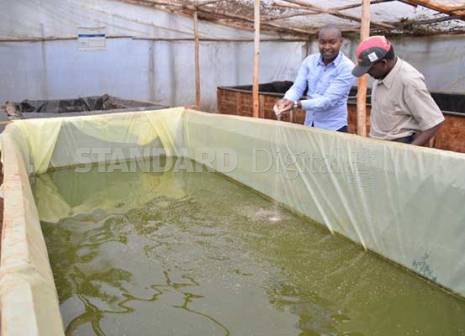×
The Standard e-Paper
Smart Minds Choose Us

An ambitious fish rearing project is changing residents fortunes in Kaaga, Meru County. The project run by the Methodist Church of Kenya trains farmers on modern fish rearing.
The CEO of the project christened — Bio-intensive and agriculture training centre — Roy Munene explains how the programme established in 2001 works.